You may also be interested in

Graduating from least developed country to middle income country status: A trap for small island developing states?
SIDS tends to perform particularly well with regards to their socio-economic achievements and development endeavours. As a result, several SIDS graduate from their Least Development Country status to Middle-Income Country status. This graduation implies that SIDS are much better-off economically and can do without the special treatments and benefits in terms of Overseas Development Assistance that they were receiving as an LDC. However, and this is the thrust of the argument in this paper, this is not the case at all. The support was and is crucial to SIDS. After all, it was the catalyst which...

Small states in the global politics of development
Much of the discussion surrounding small states has treated them as a discrete category, with common vulnerabilities and opportunities. However, a productive approach is to look at the global politics of development, and then see where small states fit in. The author looks in turn at the global politics of finance, trade and the environment. He concludes that small states have been largely unsuccessful in asserting their own interests in global politics, and that (to the extent that it is possible to generalize about states which differ greatly) vulnerabilities rather than opportunities are th...

The Role of Small States in the Multilateral Framework
The current world geopolitical configuration shows how after the end of a bipolar world set by the top superpowers (United States and the Ex Soviet Republic) along with other major players (such as Germany, Great Britain, France, Japan and China, the P5 United Nations Security Council members + 1 with the full capacity of veto power in all world top decisions and procedures) set up a new world reconfiguration that has emerged since the end of the twenty century and mainly in the beginning of this 21th century standing driven from some centers of power and in parasailed with the political and e...
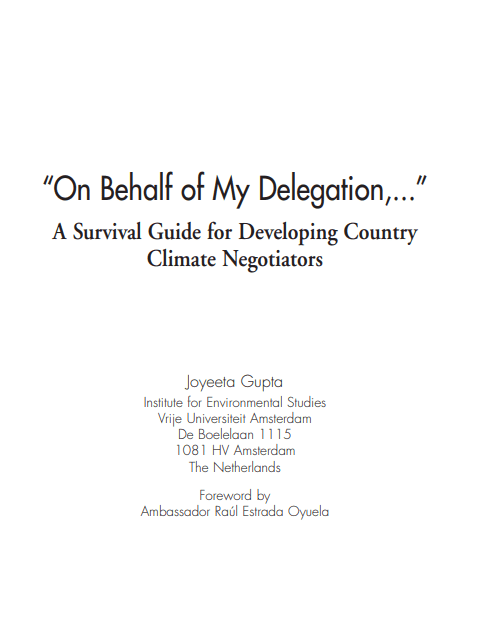
On Behalf of My Delegation,…: A Survival Guide for Developing Country Climate Negotiators
The one hundred pages of this book are in fact a useful Survival Guide for those approaching climate change negotiations for the first time. It has been written for developing country delegates, but delegates from other countries can also profit from its reading the same way that a similar survival guide for industrialized country delegates would be useful for those coming from developing countries, because it is necessary to know both sides of the story
A Framework of Best Practices for Caribbean Small States to Meet the Challenges of Climate Change
Caribbean Small States are considered vulnerable by virtue of their geographical peculiarities, economic exigencies, delicate ecosystems and rate of social development among other characteristics. Their ability to meet challenges such as climate change is therefore deficient.

The Diplomacy of Micro States
The message explores how small states navigate the world of international diplomacy and form strategic alliances to maximize their influence.

Nation branding and the role of public diplomacy in assisting small island states in developing strong nation brands
The concept of applying branding principles and strategies to nation states has been around for decades. However, in recent years, the concept has occupied prime attention in academia and the business sector.
The Limits of Neorealism
The Limits of Neorealism
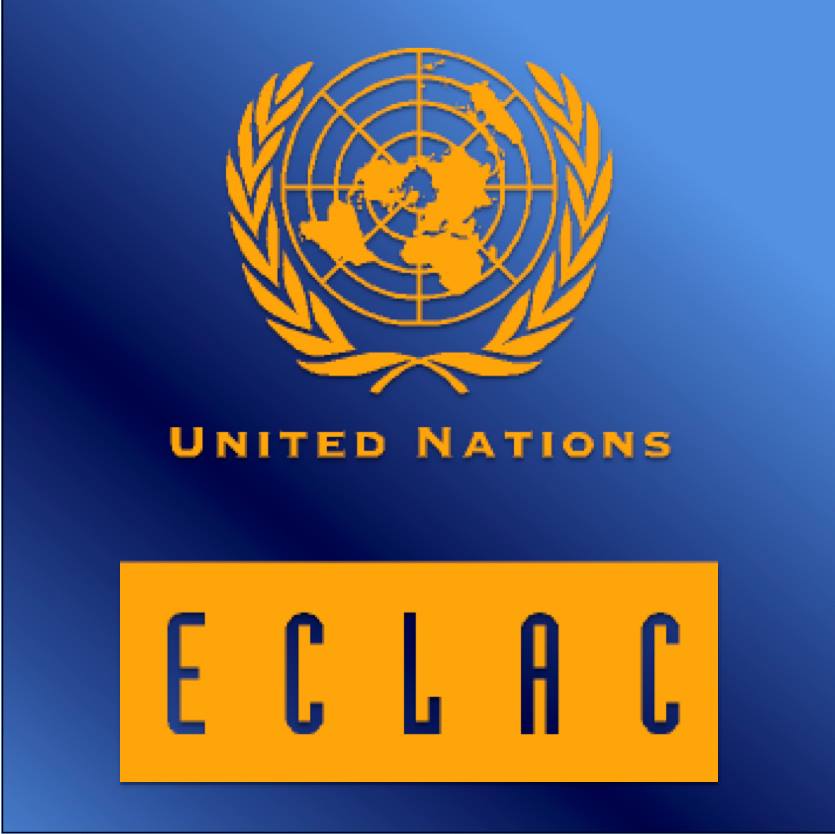
Small Economies in the Face of Globalisation
The text discusses the challenges faced by small economies in the era of globalization, highlighting the need for strategies to navigate and thrive in this interconnected world.

Small States and the Common Foreign and Security Policy (CFSP) of the EU: A Comparative Analysis
The text discusses the role of small states in the Common Foreign and Security Policy (CFSP) of the European Union, comparing their strategies and challenges.

Meeting the needs of microstate security
This article examines the pressing security concerns of microstates, particularly against the backdrop of recurring themes of vulnerability in the literature. It reviews those arguments in the early years of decolonization which expressed scepticism about the prospects for independence in such very small dependencies given their lack of defensive capacity and the geopolitical risks which they face in a potentially dangerous external milieu. The article argues that these doubts and concerns have not been realised in the actual experience of microstates particularly in terms of conventional thre...

The National Security of Small States in a Changing World
The text discusses how small states must adapt their national security strategies to address the challenges presented by a rapidly changing global environment.
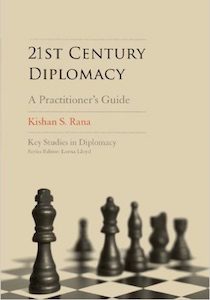
21st Century Diplomacy: A Practitioner’s Guide
In the 21st century, new kinds of challenges resulting from interdependence among states and globalisation have had a determining impact of the conduct of diplomacy. Diplomacy has become multifaceted, pluri-directional, volatile and intensive, due to the increased complexity in terms of actors, dialogues subjects, modes of communication, and plurality of objectives. This unique text, written by a leading scholar and Foreign Service expert, examines all such factors to provide the definitive guide to diplomacy as it is practiced today. With a multitude of examples from around the world, includi...

Special Ministerial Event on Food Security and Sustainble Development in Small Island Developing States
A summary of the Special Ministerial Event on Food Security and Sustainable Development in Small Island Developing States.
Small State Diplomacy
Small states can utilize diplomacy effectively by relying on their unique advantages, such as flexibility, agility, and the ability to form strategic alliances based on common interests. These states can leverage their size to create partnerships with larger nations, international organizations, and non-state actors to advance their interests on the global stage. By focusing on niche areas, networking, and utilizing innovative approaches, small states can play an important role in shaping international relations and achieving their foreign policy objectives.

Is a special treatment of small island developing States possible?
The text outlines the challenges faced by Least Developed Countries (LDCs) in achieving sustainable development and proposes strategies to address these issues through international cooperation and policy interventions.
Caribbean Diplomacy: Research on Diplomacy of Small States
With little recourse to traditional economic and political power in their international relations, diplomacy for Caribbean states is a key mechanism to achieve the realisation of the region’s overall development agenda. The Caribbean is no stranger to diplomatic challenges.

A Future for Small States: Overcoming Vulnerability
The message provides strategies for small states to overcome vulnerability and thrive in the future.

Small Island Developing States and Climate Change: Effects, Responses and Positions beyond Durban (WP)
The paper discusses the impact of climate change on Small Island Developing States (SIDS) and their responses and positions post-Durban.
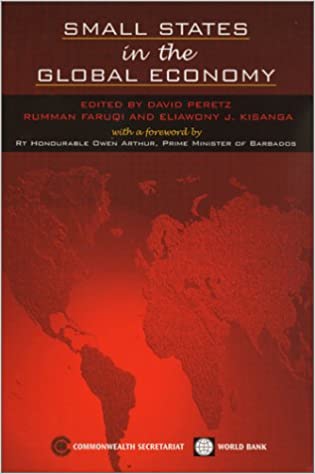
Small States in the Global Economy
The book, born out of the Commonwealth Secretariat/World Bank Joint Task Force on Small States, presents recommendations aimed at addressing the vulnerability of small states, advocating for broader recognition of their challenges.
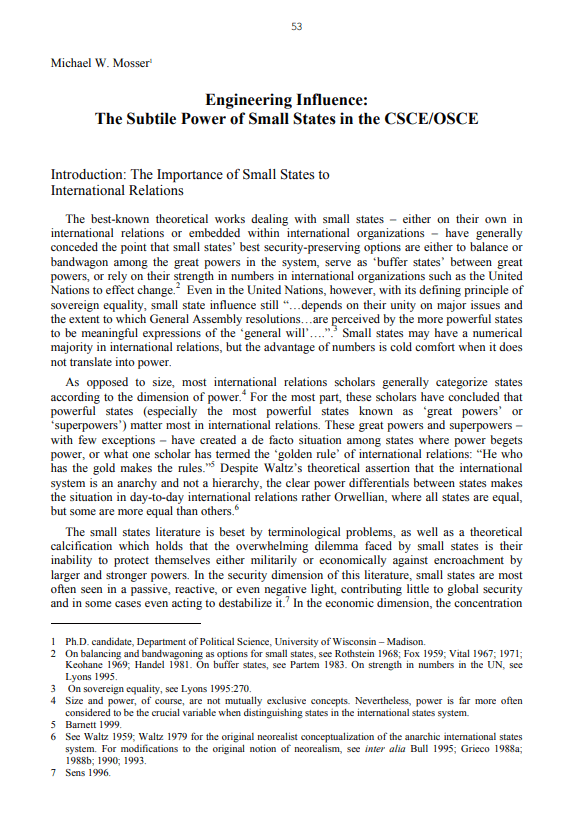
Engineering Influence: The Subtile Power of Small States in the CSCE/OSCE
The text discusses the significant impact small states have within the CSCE/OSCE through their diplomatic strategies and ability to shape agendas and outcomes.
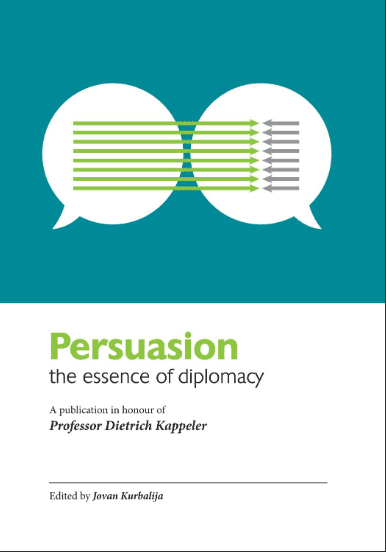
Persuading and resisting persuasion
Dr Alex Sceberras Trigona stresses that not only persuasion but also resisting persuasion is highly important for small states, which tend to be seen as the ‘diplomatic prey’ of great powers. He analyses three examples of successful persuasion from Maltese diplomatic history. First were the negotiations on Maltese neutrality, which required a lot of persuasion of two major Cold War powers and numerous regional players in the Mediterranean.
The Vulnerability of the Small Island Developing States of the Caribbean
The Small Island Developing States of the Caribbean are highly vulnerable to external economic and environmental shocks due to their small size and limited resources, which threaten their sustainability and development.

Small States at the United Nations
The proliferation of small states in the past few decades has brought small and larger states on the same playing field. Their increase in number triggered a wave of studies, raised concern by 'realists' and some powerful states, and led to an affirmation that at the United Nations, all states are equal, regardless of size.

Singapore’s Diplomacy: Vulnerability into Strength
Singapore is a practitioner of focused, innovative diplomacy, constantly in search of the political space for itself that would overcome its sense of vulnerability resulting from its geopolitical location.
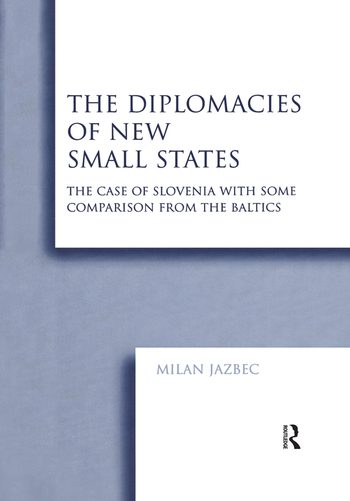
The Diplomacies of New Small States: The case of Slovenia with some comparison(s) from the Baltics
Milan Jazbec is the State Secretary at the Ministry of Defence in Slovenia responsible for his ministry’s co-operation and preparations for integration with NATO.

Small island states in the face of climatic change: The end of the line in international environmental responsibility
Small island states are disproportionately affected by climate change but are least responsible for causing it. They face severe consequences such as rising sea levels and extreme weather events, despite contributing very little to global carbon emissions. This poses a challenge to international environmental responsibility as these countries are vulnerable to the effects of climate change while having limited resources to adapt and mitigate its impacts.

Security for small states
The text discusses the importance of small states being proactive in ensuring their security by engaging in partnerships, investing in defense capabilities, and utilizing diplomatic strategies. It emphasizes the need for small states to take ownership of their security and collaborate with allies to navigate global challenges effectively.

How important is the role of small states security in the maintenance of international peace and security?
The game of International Peace and Security has for a long time been one played only by the great powers, leading to the singling out of small states in its deliberations. These states would create their own rules and be their own referees, whilst the existing small states would conduct themselves as mere spectators. However, following the effects of the end of the two World Wars, the creation of the UN and decolonization, the role of small states in the maintenance of international peace and security has gathered new responsibilities and in consequence it has made them important agents and m...

Small States, Small Problems? Income, Growth, and Volatility in Small States
The article discusses the economic performance of small states, focusing on income, growth, and volatility trends.

The changing phases of diplomacy in a Small Island Developing State: A case study of the Kingdom of Tonga
Diplomacy is an integral tool of communication utilised by nations as a means to achieve their intended interest and goals. The foundations and mode of diplomacy practiced by nations differs according to their circumstances. For Small Island Developing States who differ in size, economy, location, resources, the use of diplomacy has become a vital tool for survival.

Management of Natural and Environmental Disasters in Small Island Developing States
The message emphasizes the importance of disaster management in small island developing states due to their vulnerability to natural calamities. These states face unique challenges like limited resources, geographic isolation, and climate change impact. Capacity building, international cooperation, and innovative solutions are suggested as key strategies to enhance disaster resilience in these vulnerable regions.
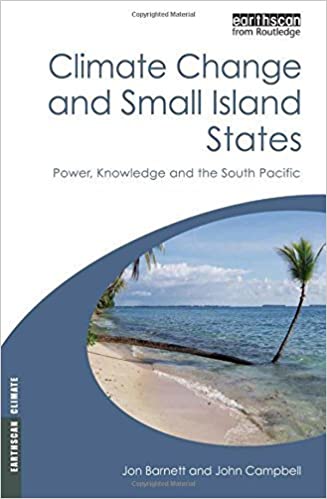
Climate Change and Small Island States: Power, Knowledge and the South Pacific
The text discusses the challenges small island states in the South Pacific face due to climate change. These states lack power and resources to adequately address climate issues, relying on external knowledge and support. The impact of climate change threatens their very existence, highlighting the urgent need for global cooperation and assistance to combat this crisis.

Island entrepreneurs: Insights from exceptionally successful knowledge-driven SMEs from 5 European island territories
The message provides insights on successful knowledge-driven SMEs from 5 European island territories.

Small States and Alliances
The article discusses the challenges small states face in forming alliances to enhance their security and influence on the global stage. It explores the strategies small states can employ to navigate power dynamics and build effective alliances with other countries. Additionally, the importance of leveraging both hard and soft power resources in alliances is highlighted as a key factor in small states' success in international relations.
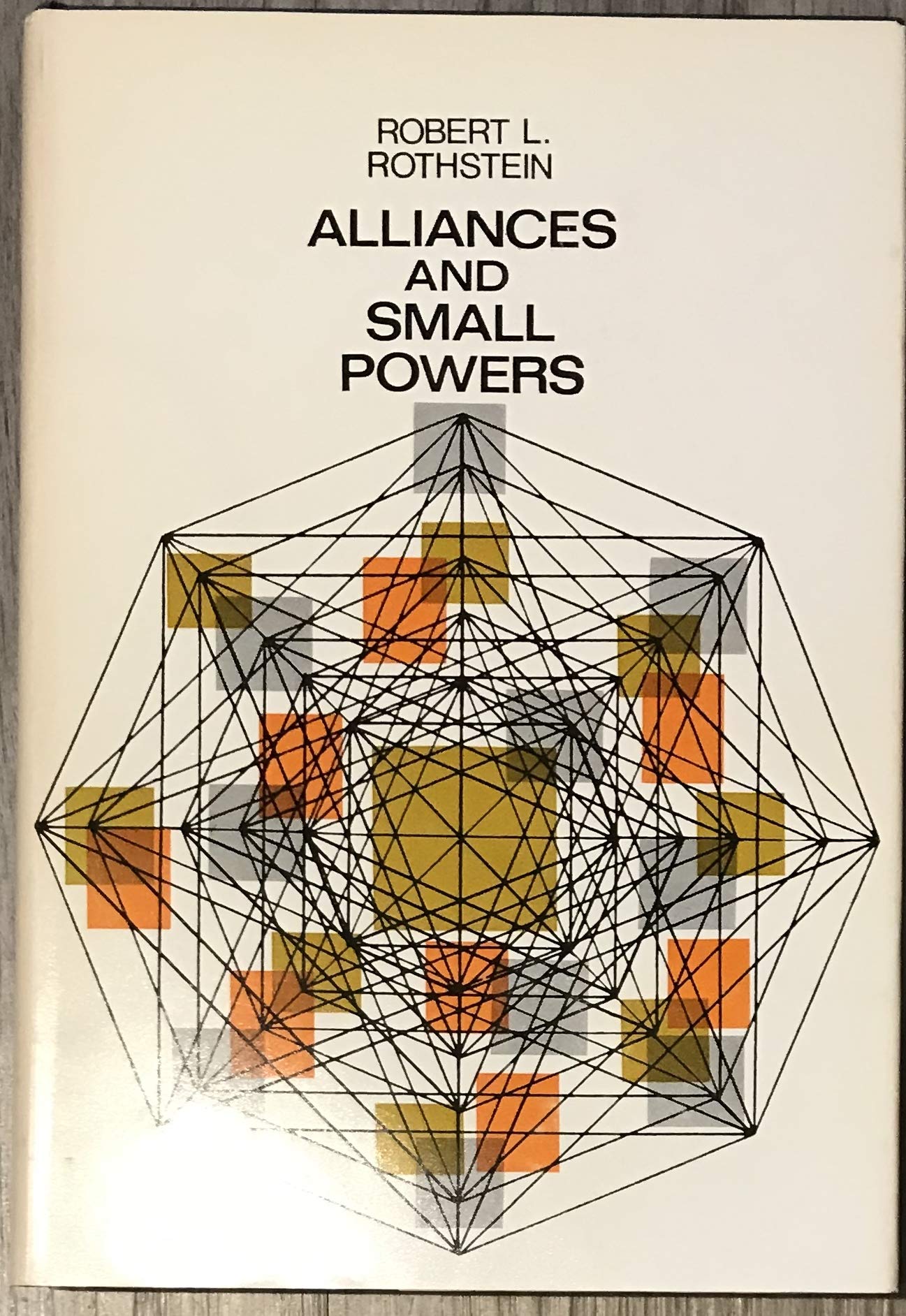
Alliances and Small Powers
This message was empty and did not contain any content to summarize.

Small states and NATO: Influence and accommodation
The influence and accommodation of small states within NATO is a vital aspect of the alliance's dynamics. These states play a significant role in shaping NATO's decisions and policies, despite their size. It is essential for NATO to consider the perspectives and needs of small states to ensure their full engagement and commitment to the alliance's collective security goals. Balancing the interests of both small and large states is crucial for NATO's effectiveness and cohesion.
The Diplomacy of Small States
The text discusses the unique diplomatic strategies employed by small states to navigate international relations successfully.
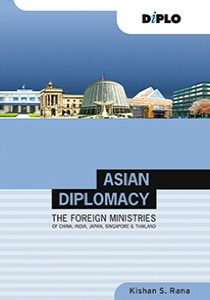
Asian Diplomacy: The Foreign Ministries of China, India, Japan, Singapore and Thailand
Based on eight years of research and interviews with over 160 professional diplomats and others, this book offers a range of information on the structures, operation and the working style of the foreign ministries of five key countries in Asia: China, India, Japan, Singapore and Thailand. The rise of Asia adds salience to this book, since it has become more important than ever before to understand the dynamics of the foreign policy process in these countries.

In search of the most sustainable and coherent diplomatic approaches to addressing the fundamental challenges Small States (including Small Island States or SIDS) perennially face in an uncertain world of hegemonic giants
Small states, in every sphere of natural and human activity, are negatively and disproportionately impacted by crises, when compared to their hegemonic, larger and stronger counterparts.

What are the priorities for small states in the international system?
There is no evidence that the vigorous political action needed to implement the recommendations of previous reports on the vulnerability of small states in the Commonwealth will be forthcoming in the near future. In matters of security, economics and particularly the environment, the collective interests of small states do not appear to have been recognized in the international community. Major donors find dealing with small individual demands from multiple small states difficult, but a regional approach simplifies matters and should be the primary area of concern. The Vulnerability Index prov...

Small developing economies and the multilateral trading system: A Caribbean perspective
Small developing economies are often constrained in participating in the negotiation and regulation of multilateral trading rules due to severe cost and resource limitations. This article argues that, despite the costs and difficulties, small states must remain engaged in the multilateral trading system in order to ensure that their specialised commercial interests are recognised and to protect their rights. Umbrella entities like the Caribbean Regional Negotiating Machinery (CRNM) provide a means of maximising the influence of small states in an international forum such as the World Tra...

The Power of Small States: Diplomacy in World War II
This Is an inquiry into how the governments of small and militarily weak states can resist the strong pressure of great powers even in crisis periods. The continued existence and, in deed, startling increase in the number of small states may seem paradoxical in the age of superpowers and the drastically altered ratio of military strength between them and the rest of the world. It is well known that the ability to use violence does not alone determine the course of world politics. Some of the other determinants can be observed with exceptional clarity in the diplomacy of the small ...

Persuasion: importance of trust, relevance for small states, and limitations of computers
Dr George Vella, Minister of Foreign Affairs of Malta, argues that persuasion is central not only to diplomacy but also to society in general. He highlights three aspects of persuasion. First is the high importance of trust for persuasion: trust creates the context in which persuasion can be used.

Multilateral Diplomacy for Small States: The Art of Letting Others Have Your Way
Multilateral Diplomacy for Small States: The Art of Letting Others Have Your Way

Roaring Mice Against the Tide: The South Pacific Islands and Agenda-Building on Global Warming
The text discusses how South Pacific Islands are exerting influence in global warming agenda-building despite their small size.

Small Developing Economies in the World Trade Organization
The text discusses the challenges faced by small developing economies within the World Trade Organization. These countries struggle due to limited resources, capacity constraints, and difficulties in implementing trade agreements. Despite efforts to enhance their participation and voice, these nations continue to face obstacles in fully benefiting from the global trading system.

Advancing the interests of small developing countries
'Given the disparity between the participation of developing and developed countries it was clear that more support was needed for the former group to be able to understand the issues and make a meaningful input.' - Rodney Taylor from Barbados
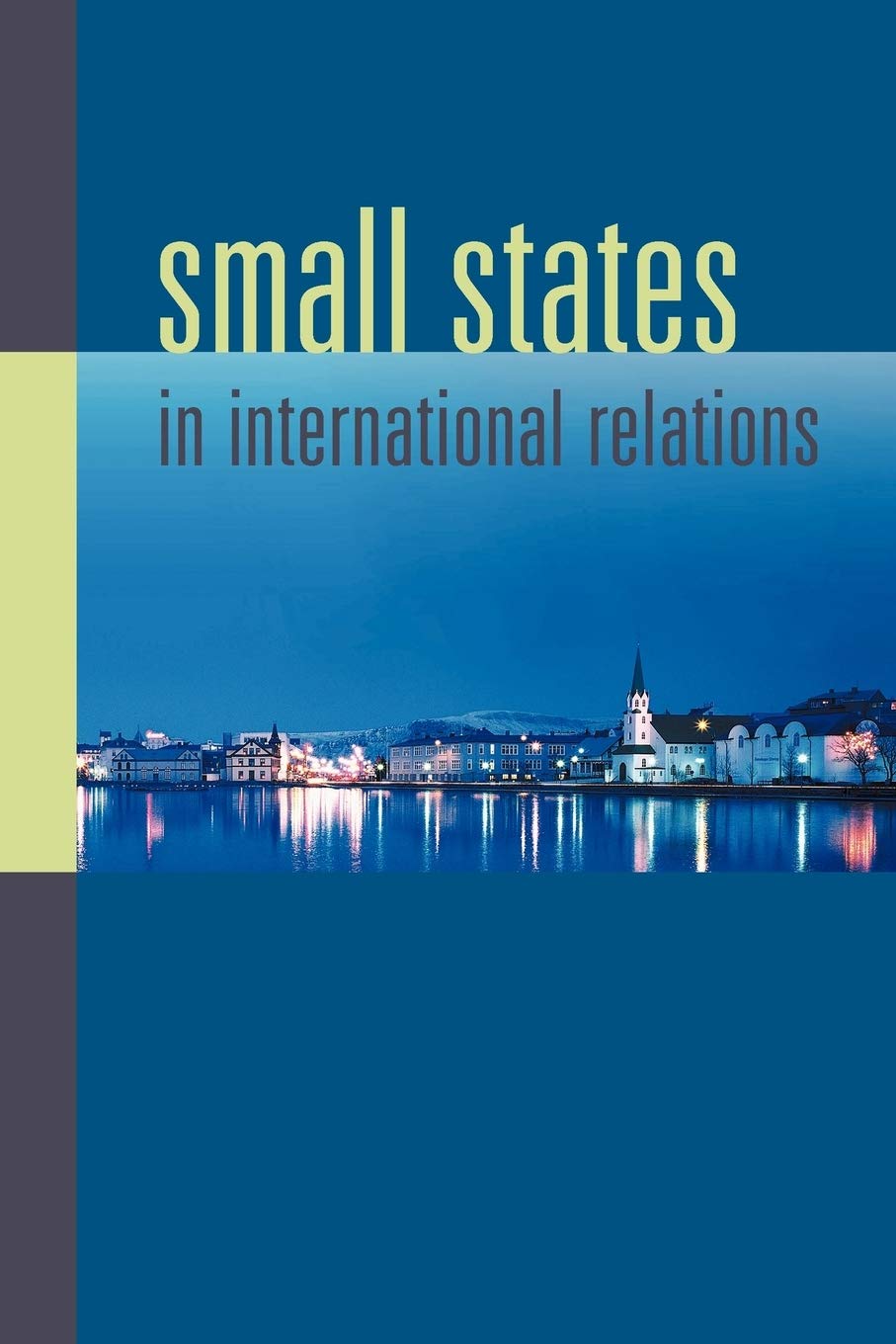
Small States in International Relations
The text discusses how small states navigate the complexities of international relations, highlighting their unique challenges and strategies for exerting influence on the global stage.

Globalization and Governance: Essays on the Challenges for Small States
The text is about the challenges faced by small states in the context of globalization and governance.

Environment and Natural Resources in Small Island Developing States
The message is likely a discussion or information about the environment and natural resources in Small Island Developing States.
The miscalculation of small nations
The text discusses how small nations can often be underestimated, showcasing examples where these countries have made significant impacts on the world stage despite their size.

Climate change, small island developing states
The message highlights the vulnerability of small island developing states to the impacts of climate change. These countries face challenges such as rising sea levels, extreme weather events, and loss of biodiversity. Urgent action is needed to address these issues and support these vulnerable nations in adapting to and mitigating the effects of climate change.

Lilliput under threat: The security problems of small island and enclave developing states
The article discusses the security challenges faced by small island and enclave developing states like Lilliput.
Small states and diplomacy: An indispensable though much diversified relation
Small states rely heavily on diplomacy to navigate the complexities of international relations. Their approaches to diplomacy vary significantly, reflecting the unique challenges and opportunities they face in the global arena.

An assessment of economic and commercial diplomacy in micro-states: A case study of Namibia
Economic diplomacy can become an important tool for foreign policy of the government to promote economic interest of Namibia in relation to trade promotion, attracting investment through channels of diplomacy.
The security of small nations: Challenges and defences
The 'essentially contested concept' of security is analysed, and some main kinds of ambiguity and dimensions outlined: level, kind of threat and kind of defence. Discourses on security, particularly of small nations, must avoid being trapped into dealing only with one level (national, which in practice normally means state), one kind of threat (military) and one kind of defence (again military). There is no clear relation between kind of alignment and military expenditures, but non-aligned states are overrepresented both among the very high armers and among the very low armers. Increasing gaps...
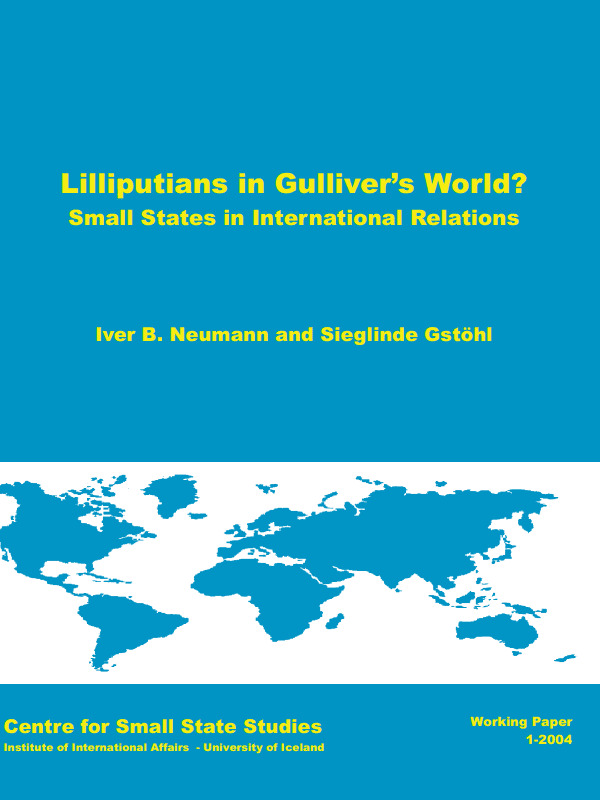
Lilliputians in Gulliver’s World? Small States in International Relations
A social science that is worthy of its name must study the universe of its cases in its entirety. If the states system remains a key component of world politics, then the study of small states is simply part and parcel of what the discipline of International Relations (IR) is about. In this piece, we want to demonstrate the importance of studying small states in some detail. We start, in this Introduction, with an outline of justifications for small states’ studies and with some historical and conceptual observations on what “smallness” entails. In Section 2 we show how small states...
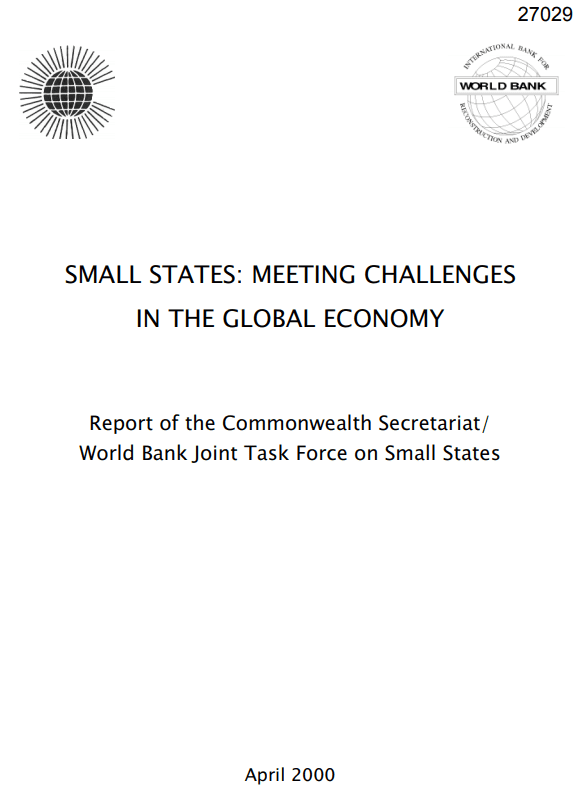
Small States: Meeting Challenges in the Global Economy
The article discusses how small states face unique challenges in the global economy and how they can adapt to overcome these obstacles. It highlights the importance of innovation, strategic partnerships, and leveraging their size to their advantage in order to thrive in the competitive global marketplace. Small states can utilize their flexibility and nimbleness to carve out a niche and find success in the face of larger competitors by focusing on areas where they have a comparative advantage. By embracing innovation and collaboration, small states can position themselves as key players in the...
The latest from Diplo and GIP
Tailor your subscription to your interests, from updates on the dynamic world of digital diplomacy to the latest trends in AI.
Subscribe to more Diplo and Geneva Internet Platform newsletters!
Diplo: Effective and inclusive diplomacy
Diplo is a non-profit foundation established by the governments of Malta and Switzerland. Diplo works to increase the role of small and developing states, and to improve global governance and international policy development.


